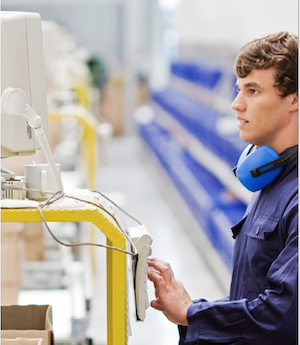More than half of business leaders surveyed in Asia-Pacific and Australasia plan to diversify their supplier base
Almost a third plan to switch to suppliers within their home market (14%) or region (19%), an increase from 4% and 10% respectively in 2021
97% of companies confirmed they are making changes to their supply chains due to geopolitical events
New research has revealed a major shift in globalisation, as companies rush to move manufacturing closer to home to protect against supply chain disruptions, while increasingly protectionist policies are breaking the world into trade blocs.

The latest Trade in Transition study, commissioned by DP World and led by Economist Impact, captured the perspectives of 3,000 company leaders as they navigate the latest disruptions to global trade – from the conflict in Ukraine to inflation. The global survey included the views of 1,000 executives in the Asia-Pacific and Australasia (APAC) markets of Australia, China, India, Indonesia, Japan, the Philippines, and South Korea.
Geopolitical uncertainty is also guiding the decisions of business leaders, with 97% of the companies surveyed in APAC – and a similar 96% globally – planning to make changes to their supply chains due to global events.
In the space of just a year, the number of companies in APAC, and globally, shifting their manufacturing and suppliers – either to their home markets or nearby – has more than doubled compared to 2021. This is driven mainly by efforts to reduce both costs and the risk of disruption.
However, businesses are using a variety of strategies. In reconfiguring their supply chains, 51% of APAC executives said they were diversifying their supplier base, against the overall average of 47% among their peers globally. In line with trends seen across the world, one in three (29%) APAC respondents also said they were decreasing the length of their supply chains due to geopolitical events, while 33% of businesses in the region plan to expand into more stable and transparent markets to hedge against uncertainty.
Inflation threat
Globally, 30% of the executives cited the persistent threat of inflation as having the most significant negative impact on trade over the next two years. In APAC, a quarter of companies cite rising inflation as a top concern. Inflationary pressures are seen in input costs – from supply shortages to transport, through high energy costs and shipping capacity constraints.
In a scenario of monetary tightening, companies across Europe, North America and Asia-Pacific anticipate exports to be 1% lower than under a business-as-usual situation due to decreasing production and demand.
A fragmenting world
The fragmentation of the world into trade blocs was also cited by 8% of executives in APAC, and 10% of global respondents, as limiting the growth of international trade. Beyond the war in Ukraine, respondents also believe US-China tensions and cyber warfare are preventing the efficient functioning of economies worldwide. This is leading to increasingly protectionist policies by governments around the world, leading to further fragmentation of the global trade system.
Against this backdrop, there is consensus among firms globally that technology holds the key to building more resilient supply chains. Some 85% of APAC respondents said they were already using or started using digital platforms in 2022 to enable direct business with customers or suppliers. Another 82% were using Internet of Things (IoT) solutions to facilitate the tracking and monitoring of cargo. Businesses in the region are also driving the adoption of advanced technologies, with 69% using artificial intelligence, big-data and predictive analytics to gain real-time insights and forecast disruptions, and 67% using blockchain to improve traceability, security and data protection. This is ahead of the global average of 62% for both technologies.
As businesses find ways to respond and grow, they are altering supply chains to build resilience – either through diversification, regionalisation, or reshoring. Companies in North America and Europe are most likely to outsource more than half of their services within their region. This is followed by 40% of companies in South America, 36% in the Middle East, 32% in Asia-Pacific and 18% in Africa, outsourcing within their regions.
To see the report in full please click here.
Click Here to read the Australia FindingsAbout Trade in Transition
This is the third edition of the Trade in Transition report commissioned by DP World and led Economist Impact. It is a global survey that retrieves data from over 3,000 executives, examining their experience of the pandemic, confidence on government policies, supply chain pressures on the movement of trade around the world and ESG priorities in trade. The report deep dives into regional (North America, South America, Europe, Middle East, Africa, and Asia-Pacific) and sectoral data (FMCG, (industrial, consumer goods, food and drink, energy and natural resources and, health and pharma) to compare and contrast priorities in international trade.
About DP World
We are a leading provider of worldwide smart end-to-end supply chain logistics, enabling the flow of trade across the globe. Our comprehensive range of products and services covers every link of the integrated supply chain – from maritime and inland terminals to marine services and industrial parks as well as technology-driven customer solutions.
We deliver these services through an interconnected global network of more than 300 business units in 76 countries across six continents, with a significant presence both in high-growth and mature markets. Wherever we operate, we integrate sustainability and responsible corporate citizenship into our activities, striving for a positive contribution to the economies and communities where we live and work.
Our dedicated, diverse and professional team of more than 101,000 from 162 nationalities are committed to delivering unrivalled value to our customers and partners. We do this by focusing on mutually beneficial relationships – with governments, shippers, traders, and other stakeholders along the global supply chain – relationships built on a foundation of mutual trust and enduring partnership.
We think ahead, anticipate change and deploy industry-leading digital technology to further broaden our vision to disrupt world trade and create the smartest, most efficient and innovative solutions, while ensuring a positive and sustainable impact on economies, societies and our planet.
Follow DP World on:
Twitter: https://twitter.com/DP_World
LinkedIn: https://www.linkedin.com/company/dp-world
About Economist Impact
Economist Impact combines the rigour of a think-tank with the creativity of a media brand to engage a globally influential audience. We believe that evidence-based insights can open debate, broaden perspectives and catalyse progress. The services offered by Economist Impact previously existed within The Economist Group as separate entities, including EIU Thought Leadership, EIU Public Policy, EIU Health Policy, Economist Events, EBrandConnect and SignalNoise.
We are building on a 75-year track record of analysis across 205 countries. Along with framework design, benchmarking, economic and social impact analysis, forecasting and scenario modelling, we bring creative storytelling, events expertise, design-thinking solutions and market-leading media products, making Economist Impact uniquely positioned to deliver measurable outcomes.







